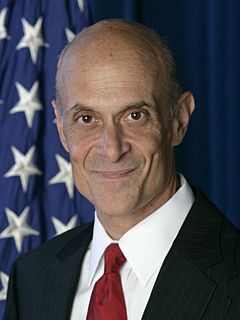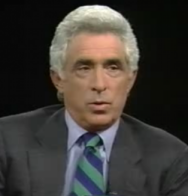A Quote by Ron Paul
When the federal government spends more each year than it collects in tax revenues, it has three choices: It can raise taxes, print money, or borrow money. While these actions may benefit politicians, all three options are bad for average Americans.
Related Quotes
According to the Tax Foundation, the average American worker works 127 days of the year just to pay his taxes. That means that government owns 36 percent of the average American's output-which is more than feudal serfs owed the robber barons. That 36 percent is more than the average American spends on food, clothing and housing. In other words, if it were not for taxes, the average American's living standard would at least double.
Is money money or isn't money money. Everybody who earns
it and spends it every day in order to live knows
that money is money, anybody who votes it to be
gathered in as taxes knows money is not money. That
is what makes everybody go crazy.... When you earn
money and spend money every day anybody can know the
difference between a million and three. But when you
vote money away there really is not any difference
between a million and three.
It's tax day and while many Americans are filing their taxes with a groan, taxpayers in the Badger State have reason to cheer. In Wisconsin, we have enacted more than $2 billion in tax cuts, giving our citizens much-needed relief, call us crazy Midwesterners but we think you know how to spend your money better than the government.
The best way to encourage economic vitality and growth is to let people keep their own money.When you spend your own money, somebody's got to manufacture that which you're spending it on. You see, more money in the private sector circulating makes it more likely that our economy will grow. And, incredibly enough, some want to take away part of those tax cuts. They've been reading the wrong textbook. You don't raise somebody's taxes in the middle of a recession. You trust people with their own money. And, by the way, that money isn't the government's money; it's the people's money.
A lot of people in the western world don't realize how much taxes limit their options. You can end up paying almost half your income in taxes, which basically means you're working for the government for 180 days a year. I think I can find better ways to use the money I make for the benefit of society.
For states' rights advocates, the Constitution is like a contract that is openly violated by one party with impunity. On paper, the states remain sovereign powers, while in reality the federal government appears able to dictate everything from the ingredients of school lunches to speed limits. Congress now routinely collects taxes in order to return the money to the states with conditions on their conforming to federal demands.
There isn't a single government agency that can't function. There's more money in this federal government, there's more money allocated than these people can possibly spend. They have to concoct asinine ways to spend it, like advertising for new food stamp users. I've gotten to the point, I'm just so righteously indignant and offended at the very idea that our government could ever run out of money when we've got a printing press, for crying out loud. Printed three and a half trillion dollars over seven years and flooded Wall Street with it.
Arthur Laffer's idea, that lowering taxes could increase revenues, was logically correct. If tax rates are high enough, then people will go to such lengths to avoid them that cutting taxes can increase revenues. What he was wrong about was in thinking that income tax rates were already so high in the 1970s that cutting them would raise revenues.
One of the tax systems in the US is for wage earners. The government takes money from them out of each paycheck - so it knows how much they make, and those workers can't cheat to any significant degree. But the other tax system is for capital. Those with capital get to tell the government what they want to tell. They may get audited, but if their tax returns are of any size the government doesn't have enough of the smart auditors to figure out what's really going on. And there are the rules that allow you to do things like take in money today and pay taxes on it thirty years from now.
If I were a candidate for running, I'd say, "Look at what the economy has done." It's strong. We've created a lot of jobs. I'd be telling people that the Democrats will raise your taxes. I'd be reminding people that tax cuts have worked in terms of stimulating the economy. I'd be reminding people there's a philosophical difference between those who want to raise taxes and have the government spend the money, and those of us who say, "You get to spend the money the way you want to see fit. It's your money."
What does it mean when Republicans and Democrats alike warn us about the 'pain' involved in cutting government spending - in their spending less of our money? For the average citizen, what pain is there in his keeping more of his money to invest it the way he wants? Taxes cost people. Tax cuts do not cost government.
What the Trump tax plan is a plan to give tiny little tax cuts to most Americans, raise taxes on perhaps one in five families and shower benefits on people who earn millions of dollars a year. And this fits with a fundamental principle the Republicans have been pursuing for a long time. The rich aren't investing and creating jobs, because they don't have nearly enough money, and so we need to get them money. And the way the Republicans want to get it to them is tax cuts first, and then to take away help for children, the disabled, the elderly and the poor.
If the US government spends 40 percent of the nation's income, as it does through either borrowing or taxes, that income is not available for people to spend. The deficit is an indirect method of taxation. Of course, politicians prefer to borrow instead of tax because then someone down the road has to deal with the consequences.































